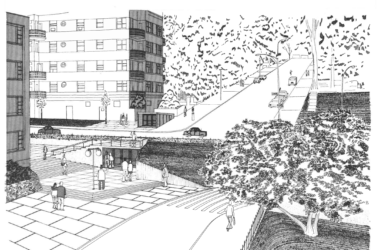Finding the time to stay active under regular circumstances is difficult, but finding ways to exercise in the middle of a global pandemic poses an entirely new, and more daunting, set of problems. That’s why the McGill Recreational Dance Company (RDC) is offering free, virtually accessible dance classes to the McGill community. In non-pandemic times, the McGill RDC is committed to bringing a variety of dance styles to McGill students at a minimal cost and without the commitment of a full semester of classes. The club is managed by a dedicated executive team. Among them is co-president Amy Kulle, U2 Science.
“Our executive team is made up of McGill students who come from a variety of different dance backgrounds to teach a choreography class in a different style each week,” Kulle said. “Since there is something new each week [and] there is no requirement to attend every class, our club works well with students’ [and instructors’] workloads.”
Now that courses are remote, the McGill RDC has been providing dance classes for free, as hosting sessions on Zoom is significantly cheaper than renting rehearsal spaces. The club plans on continuing to offer free classes for as long as McGill classes stay remote. Since all of the executive board members teach classes, the RDC exposes students to a large variety of styles, with a few recent classes including contemporary, tap, and musical theatre. The variety of classes make attending accessible to a wide range of students.
When the COVID-19 pandemic halted campus life in March, all clubs were faced with uncertainty. However, the McGill RDC did not allow the obstacles that came with lockdown to prevent them from sharing their love of dance.
“Offering online classes was a simple decision,” Kulle said. “We knew we couldn’t just cancel all our classes, since dancing can have a big positive impact on mental health, and we wanted to continue to provide this resource for our members, especially considering the times.”
Classes begin with around 10 minutes of warm-up that includes cardio and stretching. The rest of the time is used to teach a dance number that is choreographed by the teacher. By the end of the class, attendees will have learned approximately one minute of choreography.
In addition to Zoom classes, the club offers exclusive programming on their social media platforms. Beyond promoting their events on Facebook and Instagram, McGill RDC uses these platforms to engage daily with their members and the broader McGill community. On “Move Mondays,” they post simple at-home and apartment-friendly workouts. “Why Dance? Wednesday” posts provide information about the history of different styles of dance, such as the history of hip hop. On “Technique Fridays,” an executive will share tips on how to strengthen a particular technical skill, such as balance.
Though McGill RDC has established a regular weekly programming schedule, they are constantly looking for new ways to bring dance to students virtually. One upcoming event is a Virtual Dance-A-Thon, which McGill RDC will be hosting on Nov. 8 in collaboration with Alegria Contemporary Ballet Company, K-Rave, and Mosaica Dance Company, three other dance clubs at McGill. For $10, students will have access to unlimited classes on a wide variety of dance styles offered by executive members of all four clubs. Half of the event’s proceeds will be donated to Big Brothers and Big Sisters of Greater Montreal, a non-profit organization that creates and supports mentorships for youths.
“Although these are definitely not traditional ways of sharing our love of dance, we believe it is important to stay active and move both for physical and mental health,” Kulles said.
McGill RDC has put a lot of work towards finding innovative ways to continue sharing their love of dance during tumultuous times. Their commitment to bringing dance to their classmates stuck at home speaks volumes about the resilience and optimism of the McGill student body to not let COVID-19 get in the way of their passions.









